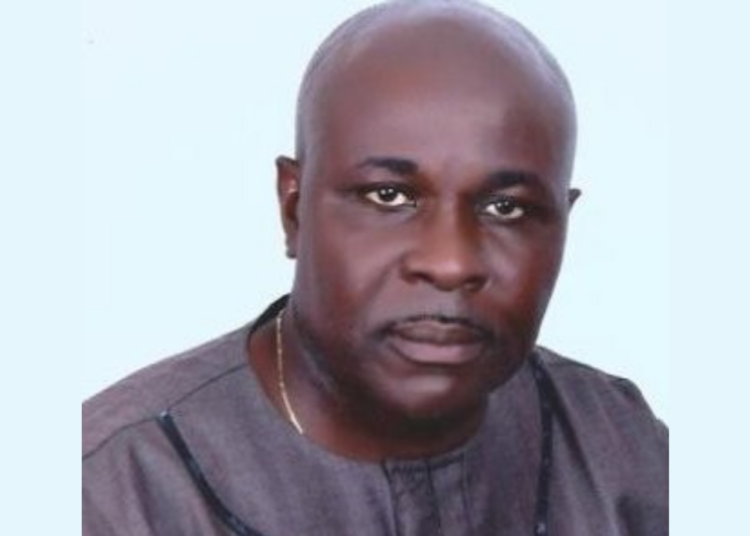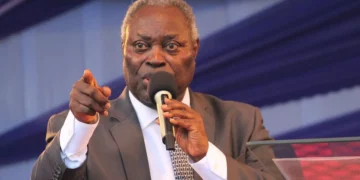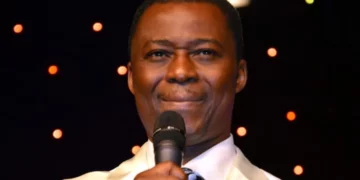I first encountered political prophecy in the run-up to the 1979 presidential election. I was then in secondary school, preparing to enter the University the following year. There were five main political parties at that time – the National Party of Nigeria (NPN) which had Alhaji Shehu Shagari as its presidential candidate; the Unity Party of Nigeria (UPN) which had Chief Obafemi Awolowo as its flag bearer; the Nigerian Peoples Party (NPP) which had Dr Nnamdi Azikiwe as its presidential candidate, the Peoples Redemption Party (PRP) which had Alhaji Aminu Kano as its flagbearer and the Great Nigerian Peoples Party (GNPP) which had Alhaji Waziri Ibrahim as its presidential candidate.
Largely because we live in a highly spiritualized society (some would say superstitious society), the predictions of those who claimed to possesses mystical powers and men and women who claimed they could hear directly from God –were closely followed. One of those people was Professor Godspower Oyewole, an Indian trained parapsychologist and columnist with the defunct Lagos Weekend who predicted that the name of the candidate who would win the election was in the Bible. Now, to be a Professor in those days had a special aura. To be a parapsychologist, a word I first heard in connection with Oyewole, was in our imagination, to be really out there in the world of mysticism and the occult. And to cap it all, he was trained in India! In those days there were many stories of the paranormal practices in India – including how they were banned from participating in Olympic competitions because their contingent had a penchant for using their assumed occult talents to gain unfair advantage over other competitors. Some of the examples often cited about their assumed mystical powers included their javelin throwers at an Olympic competition throwing javelins that would take days to land outside the stadium, and their football players being invisible to their opponents in the field which enabled them to score against any team at will, sometimes as many as 100 goals in a match. The prediction by Godspower Oluwole was a big boost to supporters of both the UPN and the NPP since the names of their heroes – Benjamin (for Zik) and Jeremiah (for Awolowo) were in the Bible. However, as the campaigns progressed, Professor Oyewole suddenly declared that Shagari’s name was also in the Bible as Shamgar, (a Biblical Judge who repelled the incursion of the Philistines into Israeli territories in the Book of Judges). This became more confusing for me because I felt that a crystal ball, if it really existed, was supposed to clarify matters, not to cause more confusion.
As with Godspower in the run-up to the 1979 elections, so it appears to be with our men of God in the run up to the 2023 general elections. My suspicion is that had Oyewole been alive today, he would probably be a proud General Overseer of one of the biggest churches around.
In the run-up to the 2023 presidential election up to the decision of the Supreme Court, there were many prophecies on who would win the 2023 election. While many of the churches, especially Pentecostal churches seemed to lean towards Peter Obi of the Labour Party, there were of course those who stood for Tinubu. Several Muslim clerics from the North favoured either Atiku or Tinubu. Essentially there was an interface between faith and ethnicity and famous political prophecies during the election appeared to mirror that trend. Some of the most followed prophets who predicted the election included Fr Mbaka of Adoration Ministry Enugu (who spoke from both sides of his mouth because he had been sanctioned for his brand of aggressive political prophecy), Primate Elijah Ayodele of INRI Evangelical Spiritual Church, Chukwuemeka Cyril Ohanaemere, an Onitsha-based pastor popularly known as Odumeje, and famous for slamming his parishioners WWE-style; and Pastor Joshua Iginla of the Champions Royal Assembly. While some of these prophets had got a few prophecies (or guess works depending on where one stands) right they have all had more misses than they had hit on the spot.
With the conclusion of the legal challenge to the declaration of Bola Tinubu as President, prophets who missed the mark are being called out. For those who correctly prophesied victory for Tinubu, their members have tried to play this up – as evidence that they are true prophets, and subtly trying to turn it into a marketing point to “win more souls for the kingdom” – or in plain language to win more members for their church. Those who got it wrong have either kept quiet, or found a good twist to it – it was rigged or they still believe that “in the fullness of time” the candidate they prophesied victory for would still emerge triumphant. Of course the “fullness of time” is an elastic period that can stretch from tomorrow to an eternity.
But does unfulfilled prophecy necessarily make one a false prophet? Some say that because God is incapable of lying, he cannot say a thing without the thing coming to pass. Those who view prophecy from this perspective argue that all those whose prophecies on the outcome of the election failed to come to pass did not hear anything from God as they claimed and are therefore false prophets. I do not agree with this. There are several reasons why prophecies may fail. These include one, failed interpretation of a prophecy. For instance, in Acts 21:10-14, Prophet Agabus heard from God that Paul would suffer greatly in Jerusalem but Paul’s disciples misinterpreted this to mean that Paul should not go to Jerusalem. Two, sometimes the true meaning of a prophecy becomes clearer only after the event it foretold has passed. A good example here is in Hosea (11:1 and Matthew 2:15) where we encountered the expression, “Out of Egypt have I called my son”. A literal interpretation of this could mean that the Messiah would come from Egypt or even be an Egyptian. It was only after King Herod wanted to kill the child Jesus and his parents were divinely instructed to take him for safety in Egypt and God again had to call the parents to return the child home after the death of Herod that the meaning of that prophesy became clearer. Three, even generally accepted prophets of God occasionally make prophesies that fail to materialize – at least in their life time. A good example is the Prophet Jonah who prophesied to the people of Nineveh thus: “Forty more days and Nineveh will be overthrown” (Jonah 3:4). But this prophesy was not fulfilled in Jonah’s generation because Nineveh repented and God spared the city. The point is that sometimes prophecies can be premised on certain conditions – as in the case of Nineveh.
The above is not meant to be a soft landing for the many prophets whose prophesies failed to come true in the last election but to correct the notion that a failed prophecy necessarily equals to a false prophet. Of course anecdotal evidence suggests that there are simply too many false prophets and miracle hawkers around who are driven by their lust for lucre and deserve to be called out.
God should be left out of elections because He has more important issues to deal with than being concerned about the struggle for power and lucre among His children. Democratic practice is antithetical to the way God works. For instance, while the Bible tells us that God chose His people – the old Israelites (and by extension all of us), in a democracy, the process of choice is reversed by people choosing their own representatives. While I believe there are genuine men and women of God who get inspirations from God (I am not sure of those who claim that God told them this or that as He did to Moses on Mountain Horeb), like other aspects of national life, there are also charlatans and profit seekers (pastoprenuers) who use false prophecies and contrived miracles to prey on the gullibility of the masses. It was precisely to protect the British public against possible abuse that the government in 2008 repealed the Fraudulent Mediums Act of 1951 (which prohibited a person from claiming to be a psychic, medium, or spiritualist in a bid to make money from people except as Entertainment). The new Act places the burden of proof on people who claim to have special powers, to prove, in case of litigation, that they really possess the powers they claim to have. There is an urgent need to regulate the prophecy and miracle ‘industries’ in Nigeria to protect gullible masses, especially in these times of abject poverty and desperation.
___________
Jideofor Adibe is Professor of Political Science and International Relations at Nasarawa State
University, Keffi and Extraordinary Professor of Government Studies at North Western
University, Mafikeng South Africa. He is also the founder of Adonis & Abbey Publishers (www.adonis-abbey.com) and publisher of the online newspaper, The News Chronicle (www.thenews-chronicle.com). He can be reached on 0705 807 8841(Text or WhatsApp only).





